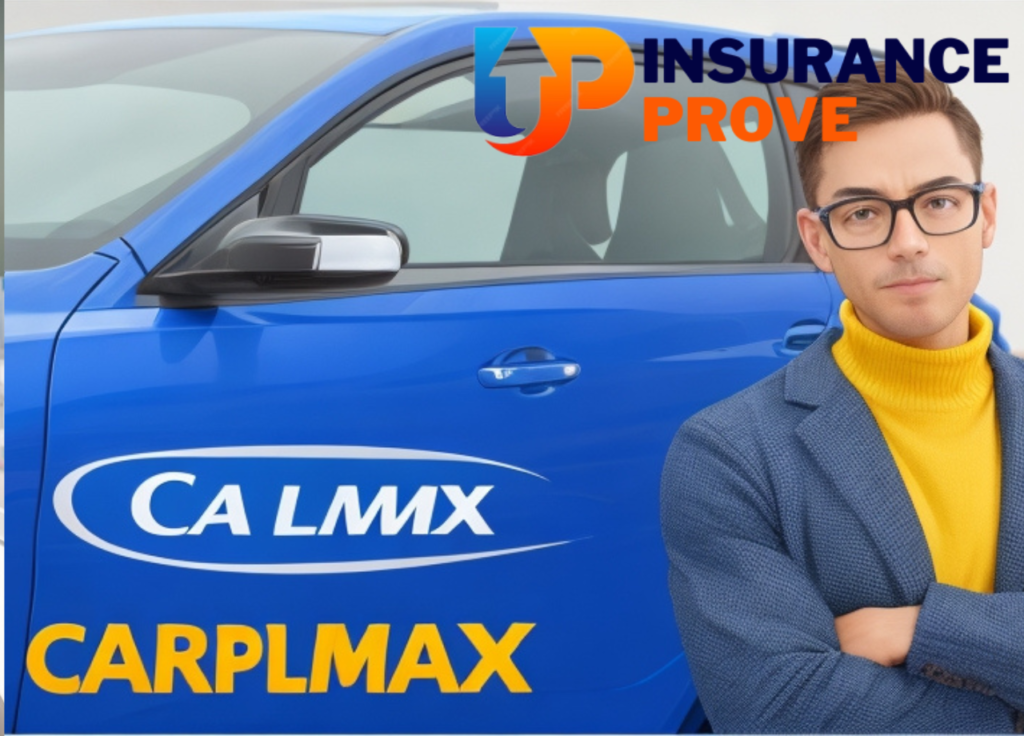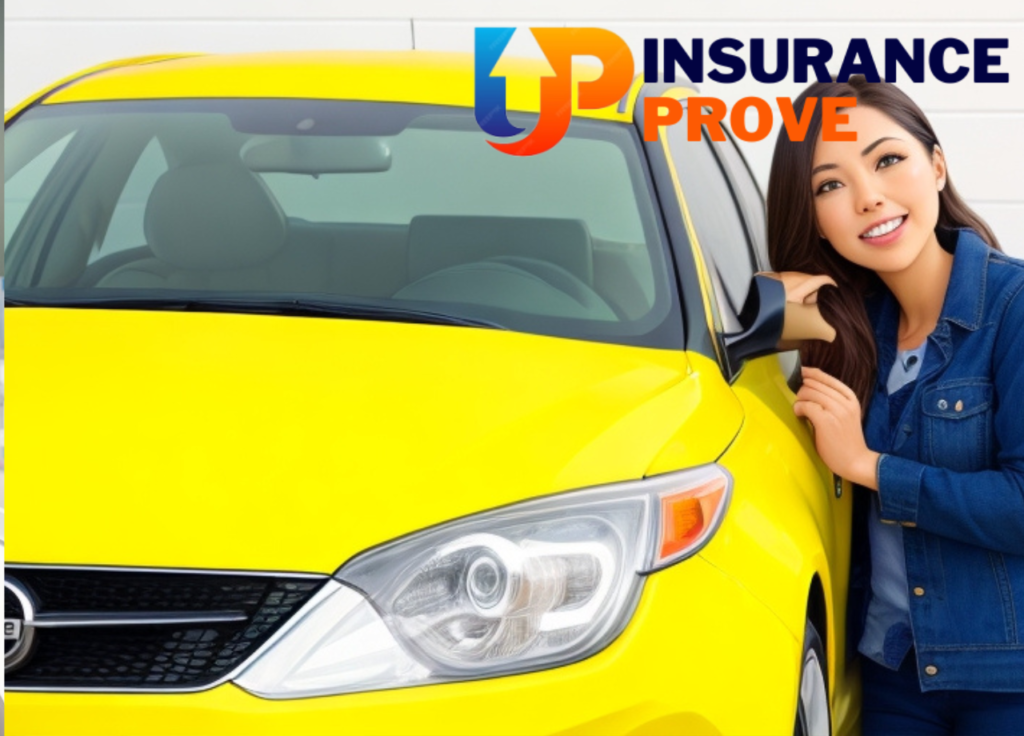Introduction
When it comes to purchasing a vehicle, there’s a lot to consider. You’ve found your dream car at Carmax, but there’s one question on your mind: “How do I know if I have gap insurance Carmax?” Gap insurance, or Guaranteed Asset Protection insurance, is a crucial safety net for car buyers. In this comprehensive guide, we’ll walk you through everything you need to know about gap insurance at Carmax. From understanding the importance of this coverage to verifying its presence, you’ll be well-equipped to protect your automotive investment.
Importance of Gap Insurance for Car Buyers
Gap insurance is a financial safeguard that can make a significant difference in protecting your investment. It’s especially crucial for car buyers for several reasons:
- Depreciation Protection: As soon as you drive your new car off the lot, its value starts to depreciate. Gap insurance covers the “gap” between your car’s current value and the amount you owe on your auto loan. Without it, you could be left with a substantial financial burden in the event of a total loss.
- Lease and Loan Coverage: Whether you’re leasing your vehicle or financing it through a loan, gap insurance is designed to protect you. It ensures that you’re not stuck paying off a car you no longer have.
- Peace of Mind: Gap insurance offers peace of mind. It’s an extra layer of protection, allowing you to enjoy your new car without the constant worry of unexpected financial setbacks.
What is Gap Insurance?
Gap insurance is an insurance policy that covers the gap between your car’s actual cash value (ACV) and the amount you owe on your auto loan or lease. It’s a specific type of coverage that kicks in when your vehicle is deemed a total loss due to theft or accidents. In such unfortunate circumstances, standard auto insurance may not cover the full cost of your outstanding loan or lease, which is where gap insurance proves its worth.
How to Check for Gap Insurance at Carmax
Now, let’s address the critical question: “How do I know if I have gap insurance Carmax?” Here are the steps to verify whether your Carmax vehicle purchase includes gap insurance:
1. Reviewing Your Carmax Purchase Agreement
Begin by reviewing your Carmax purchase agreement. This document is essential, as it outlines the details of your car purchase, including any additional products or services. Look for any mention of gap insurance, as it should be listed if you opted for this coverage. The section related to your financing or loan agreement is a good place to start.
2. Contacting Carmax Customer Support
If your purchase agreement doesn’t explicitly mention gap insurance, the next step is to contact Carmax’s customer support. They can provide you with specific details regarding your car purchase and any additional coverage you may have. Be sure to have your purchase agreement and vehicle information on hand when you reach out to them.

Understanding Gap Insurance
Gap insurance can be a bit confusing for some, but it’s essential to grasp its key components. Here’s a breakdown of the fundamental aspects of gap insurance:
What is Gap Insurance and Why is it Crucial?
Gap insurance, as mentioned earlier, is a policy that covers the “gap” between the actual cash value (ACV) of your car and the remaining balance on your auto loan or lease. It’s crucial for several reasons:
- Depreciation: Gap insurance accounts for the rapid depreciation that occurs in the early years of vehicle ownership, ensuring that you don’t end up owing more than your car’s worth.
- Financial Protection: It provides financial protection in situations where your car is declared a total loss due to accidents, theft, or other covered events. In such cases, your standard auto insurance may not cover the full amount you owe.
- Peace of Mind: Gap insurance offers peace of mind, knowing that you won’t face unexpected financial burdens in already stressful situations.
Gap Insurance vs. Standard Auto Insurance
Gap insurance is often misunderstood as being redundant with standard auto insurance. However, it serves a distinct purpose:
- Standard Auto Insurance: Traditional auto insurance covers repairs, liability, and other damages related to accidents, but it pays out based on your vehicle’s actual cash value, which may not cover your outstanding loan or lease balance.
- Gap Insurance: Gap insurance, on the other hand, focuses on the financial gap between what your standard insurance covers and what you owe, protecting you from a potentially substantial financial loss.
How Gap Insurance Covers Vehicle Depreciation
One of the main reasons why gap insurance is essential is the rapid depreciation that cars experience. In the first few years, a new car’s value can drop significantly. Here’s how gap insurance helps with depreciation:
- Immediate Depreciation: The moment you drive your new car off the lot, it loses value. Gap insurance kicks in to cover the difference between your car’s ACV and your outstanding loan or lease balance, which can be substantial in the early stages of ownership.
- New Car Replacement: Some gap insurance policies even offer new car replacement, ensuring that you can replace your totaled vehicle with a brand-new one, so you’re not stuck with an older, depreciated model.
Benefits of Gap Insurance
Gap insurance offers various benefits for car buyers, making it a wise choice for protecting your investment:
Advantages of Having Gap Insurance
- Financial Security: Gap insurance provides financial security, preventing you from owing more than your car’s worth in the event of a total loss.
- No Out-of-Pocket Expenses: You won’t be burdened with out-of-pocket expenses to cover the gap between your auto loan/lease balance and your insurance payout.
- Peace of Mind: Enjoy your new car with peace of mind, knowing that you’re protected from unexpected financial setbacks.
Real-Life Scenarios: When Gap Insurance Proves Valuable
To understand the real value of gap insurance, let’s explore a couple of scenarios where it can be a lifesaver:
Scenario 1: Total Loss Accident
Imagine you’ve just purchased a brand-new car from Carmax. Unfortunately, a few months later, you’re involved in a severe accident, and your car is declared a total loss. Your standard auto insurance offers a payout based on your car’s current value, which has significantly depreciated. Without gap insurance, you’d be left with a substantial outstanding loan or lease balance. Gap insurance steps in to cover that difference, ensuring you’re not financially burdened.
Scenario 2: Vehicle Theft
In another unfortunate situation, your car is stolen, and it’s never recovered. Your standard auto insurance covers theft but pays out based on the car’s ACV. With gap insurance, you’re protected from having to pay off the remaining loan or lease balance, even though you no longer have the car.
How Gap Insurance Can Protect Your Investment
In essence, gap insurance serves as a protective shield for your investment. It ensures that your Carmax car purchase doesn’t become a financial liability in cases of total loss. With gap insurance, you can confidently enjoy your vehicle, knowing that your financial interests are safeguarded.
Alternatives to Gap Insurance
While gap insurance offers substantial benefits, it’s not the only option for protecting your investment. Here, we’ll explore alternatives to gap insurance:
Options for Closing the Gap: Alternatives to Gap Insurance
- Extended Warranties: Some car buyers opt for extended warranties, which can cover specific repairs and maintenance costs. While this doesn’t directly address the depreciation gap, it can provide financial security in other ways.
- Loan/Lease Payoff Coverage: Some insurance companies offer loan/lease payoff coverage as an alternative to gap insurance. This coverage may come with limitations and conditions, so it’s essential to understand the terms.

Evaluating the Best Coverage for Your Vehicle
When considering alternatives to gap insurance, it’s crucial to evaluate what best suits your needs. Factors such as your car’s make and model, loan or lease terms, and your financial situation should all be considered when determining the most suitable coverage.
Gap Insurance Costs and Considerations
Gap insurance offers valuable protection, but it’s essential to understand the factors that affect its costs and considerations when purchasing it:
Factors Affecting Gap Insurance Premiums
- Vehicle Value: The value of your vehicle significantly influences your gap insurance premiums. A more expensive car may have higher premiums.
- Loan or Lease Terms: The length and terms of your loan or lease can impact the cost of gap insurance. Longer loan terms may result in higher premiums.
- Coverage Limits: The coverage limits you choose can affect your premiums. Higher coverage limits provide more financial security but may come with higher costs.
Evaluating the Cost of Gap Insurance
Gap insurance is typically affordable, especially when compared to the potential financial burden it can prevent. While the cost varies based on factors like the vehicle’s value and your loan/lease terms, it’s a relatively small expense that can offer significant protection.
Choosing the Right Coverage for Your Car Purchase
Selecting the right coverage for your car purchase is a crucial decision. Gap insurance is a valuable option, but it’s essential to weigh it against alternatives and consider your specific circumstances. Consulting with an insurance professional can help you make an informed choice.

Additional Insights and Tips
- Shop Around for Gap Insurance: Don’t settle for the first gap insurance policy you come across. Shop around to find the best rates and coverage that suits your needs.
- Read the Fine Print: Be sure to read and understand the terms and conditions of your gap insurance policy, including any limitations or exclusions.
- Keep Your Car Well-Maintained: Regular maintenance and care for your vehicle can help maintain its value, reducing the potential gap in the event of a total loss.
Conclusion
In conclusion, understanding gap insurance and its importance for Carmax customers is crucial for protecting your investment. By asking the question, “How do I know if I have gap insurance Carmax?” and taking the necessary steps to verify and secure this coverage, you’re ensuring your financial security in the face of unforeseen total loss events. Gap insurance offers peace of mind and protection, allowing you to enjoy your car without the constant worry of unexpected financial setbacks. So, when you drive your new car off the Carmax lot, you can do so with confidence, knowing that you’re well-prepared for any situation. It’s an investment in both your vehicle and your peace of mind.
Gap Insurance FAQs
As you navigate the world of gap insurance, you might have some questions. Here are answers to common queries:
Common Questions About Gap Insurance
Is Gap Insurance a One-Time Payment?
Gap insurance can be purchased as a one-time payment or included in your monthly insurance premium. You have the option to choose the payment method that best suits your preferences.
Does Gap Insurance Cover Stolen Personal Belongings?
Gap insurance primarily covers the financial gap between your car’s value and your loan/lease balance. It typically doesn’t extend to cover personal belongings stolen from your vehicle.
Can Gap Insurance Be Transferred to a New Vehicle?
Gap insurance is specific to the vehicle for which it was purchased. It doesn’t automatically transfer to a new car. You’ll need to secure gap insurance for the new vehicle separately.
Is Gap Insurance the Same as Warranty Coverage?
No, gap insurance and warranty coverage are not the same. Gap insurance focuses on loan/lease balance protection, while warranty coverage typically addresses repairs and maintenance.
Can I Cancel Gap Insurance?
Yes, you can typically cancel gap insurance if you no longer require it. Some insurers may provide a pro-rated refund if you cancel before the policy term expires.
Is Gap Insurance Mandatory?
Gap insurance is not mandatory, but it’s highly recommended for car buyers, especially those with new vehicles.
Can I Add Gap Insurance Later?
In some cases, you can add gap insurance to your policy after your car purchase, but it’s best to secure it at the time of purchase for full protection.
Does Gap Insurance Cover Theft?
Yes, gap insurance covers theft, as it’s considered a total loss event.
Expert Answers to Gap Insurance Queries
Can Gap Insurance Cover Negative Equity from a Previous Car Loan?
Gap insurance is designed to cover the gap between your car’s value and your current loan/lease balance. It doesn’t extend to cover negative equity from a previous car loan.
What Happens if I Don’t Have Gap Insurance and My Car is Totaled?
If your car is totaled and you don’t have gap insurance, you’ll be responsible for paying the remaining loan or lease balance out of pocket, which can be a substantial financial burden.
Does Gap Insurance Cover Mechanical Repairs?
Gap insurance typically doesn’t cover mechanical repairs or regular maintenance. It focuses on financial protection in the event of a total loss.
Is Gap Insurance Necessary for Leased Vehicles?
Gap insurance is highly recommended for leased vehicles, as it ensures that you won’t be left with a significant financial obligation if the leased car is declared a total loss.
Can I Add Gap Insurance Midway Through My Lease or Loan Term?
While it’s best to secure gap insurance at the time of your car purchase, some insurers may allow you to add it to your policy mid-term, but it’s advisable to check with your insurer for specific details
How Much Does Gap Insurance Cost?
The cost of gap insurance varies, but it’s relatively affordable, often adding just a few dollars to your monthly premium.
Is Gap Insurance Worth It for Used Cars?
Gap insurance is valuable for both new and used cars, as depreciation affects all vehicles.